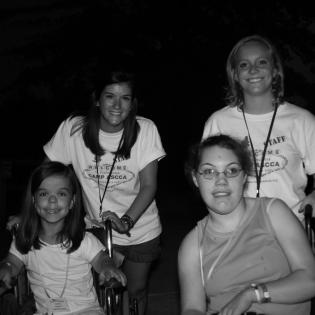Treating Others with Respect
The learners analyze many variations of the Golden Rule and relate it to the concept of serial reciprocity. They rewrite the golden rule to reflect respect for cultural differences.
The learners will:
- compare versions of the Golden Rule from different faith communities.
- differentiate between returning the favor and serial reciprocity.
projected copy of handout below: Quotes from Different Faiths
Instructions
Anticipatory Set:
Display the handout "Quotes from Different Faiths" and talk about how they relate to the version of the "golden rule" with which they are familiar. Discuss why it is significant that so many different faiths and cultures have such a similar rule of civility. What would a world look like if we all followed that "rule."
Discuss the idea of "returning a favor." Ask the young people for examples and compare the idea to the golden rule. Are there times you aren't returning a favor when you are doing unto others as you would have them do to you? Explain.
The phrase returning the favor is the process of "giving something" back to a person who has "given something" to you. This represents a circular rather than linear pattern of giving.
Define the phrases pay it forward or serial reciprocity as having received from one person, we give to another person. This creates a chain of giving in a linear rather than circular pattern. Talk about examples of serial reciprocity. For example, when someone allows you to go first in line, it may cause you to let someone else go first another time. Discuss what might cause one to have the desire to pay it forward? How is that good for society?
What I want "done to me" might be different than what someone else might like. Try to rewrite the generous "law" in a way that considers cultural differences. Discuss whether the limit of the golden rule is it doesn't hold up respect for cultural differences.
It might be something like this: "Do unto others what they would want done to them."
Brainstorm ways to model generosity in the community by doing to others as they would like to have done to them.
Handouts
Philanthropy Framework
-
Strand PHIL.I Definitions of Philanthropy
-
Standard DP 01. Define Philanthropy
-
Benchmark HS.4 Define and give an example of serial reciprocity.
-
-
Standard DP 06. Role of Family in Philanthropy
-
Benchmark HS.3 Identify how subgroups and families in society demonstrate giving, volunteering, and civic involvement.
-
-
-
Strand PHIL.II Philanthropy and Civil Society
-
Standard PCS 01. Self, citizenship, and society
-
Benchmark HS.2 Discuss and give examples of why some humans will sacrifice for the benefit of unknown others.
-
Benchmark HS.3 Give examples of human interdependence and explain why group formation is one strategy for survival.
-
Benchmark HS.4 Describe and give examples of characteristics of someone who helps others.
-
Benchmark HS.5 Describe civil society advocacy organizations and their relationship to human rights.
-
-
Standard PCS 02. Diverse Cultures
-
Benchmark HS.1 Analyze philanthropic traditions of diverse cultural groups and their contributions to civil society.
-
Benchmark HS.2 Give examples from history of how intolerance of ideas, religion, and minorities contributed to social disintegration.
-
-
Standard PCS 06. Philanthropy in History
-
Benchmark HS.1 Describe how the common good was served in an historical event as a result of action by a civil society sector organization.
-
Benchmark HS.2 Give an example of individual philanthropic action that influenced national or world history.
-
Benchmark HS.3 Describe important events in the growth and maturation of the civil-society sector in the nation and world.
-
Benchmark HS.5 Identify positive philanthropic historic acts or events that helped build the community, state, and nation.
-
-
-
Strand PHIL.III Philanthropy and the Individual
-
Standard PI 01. Reasons for Individual Philanthropy
-
Benchmark HS.1 Define and give examples of motivations for giving and serving.
-
Benchmark HS.10 Identify reasons why historic figures acted for the common good.
-
Benchmark HS.4 Cite historical examples of citizen actions that affected the common good.
-
-
-
Strand PHIL.IV Volunteering and Service
-
Standard VS 01. Needs Assessment
-
Benchmark HS.1 Identify a need in the school, local community, state, nation, or world.
-
-
